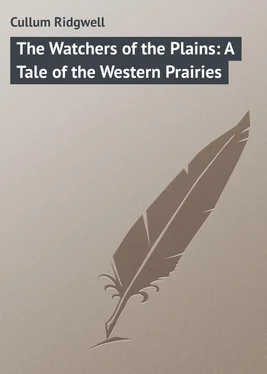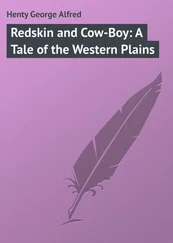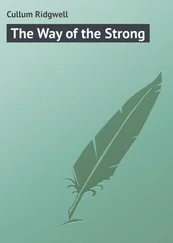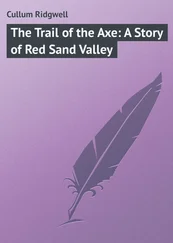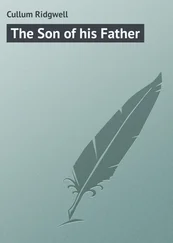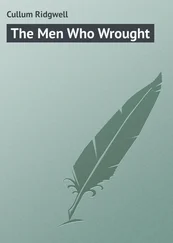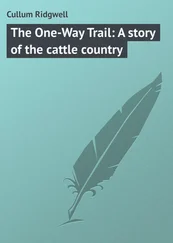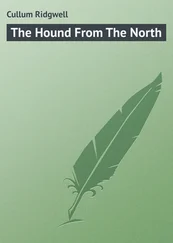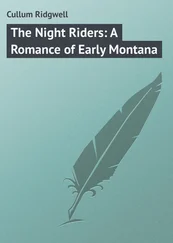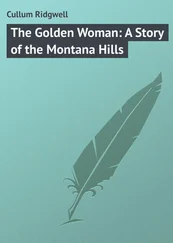Ridgwell Cullum - The Watchers of the Plains - A Tale of the Western Prairies
Здесь есть возможность читать онлайн «Ridgwell Cullum - The Watchers of the Plains - A Tale of the Western Prairies» — ознакомительный отрывок электронной книги совершенно бесплатно, а после прочтения отрывка купить полную версию. В некоторых случаях можно слушать аудио, скачать через торрент в формате fb2 и присутствует краткое содержание. Жанр: foreign_language, foreign_prose, foreign_adventure, на английском языке. Описание произведения, (предисловие) а так же отзывы посетителей доступны на портале библиотеки ЛибКат.
- Название:The Watchers of the Plains: A Tale of the Western Prairies
- Автор:
- Жанр:
- Год:неизвестен
- ISBN:нет данных
- Рейтинг книги:5 / 5. Голосов: 1
-
Избранное:Добавить в избранное
- Отзывы:
-
Ваша оценка:
- 100
- 1
- 2
- 3
- 4
- 5
The Watchers of the Plains: A Tale of the Western Prairies: краткое содержание, описание и аннотация
Предлагаем к чтению аннотацию, описание, краткое содержание или предисловие (зависит от того, что написал сам автор книги «The Watchers of the Plains: A Tale of the Western Prairies»). Если вы не нашли необходимую информацию о книге — напишите в комментариях, мы постараемся отыскать её.
The Watchers of the Plains: A Tale of the Western Prairies — читать онлайн ознакомительный отрывок
Ниже представлен текст книги, разбитый по страницам. Система сохранения места последней прочитанной страницы, позволяет с удобством читать онлайн бесплатно книгу «The Watchers of the Plains: A Tale of the Western Prairies», без необходимости каждый раз заново искать на чём Вы остановились. Поставьте закладку, и сможете в любой момент перейти на страницу, на которой закончили чтение.
Интервал:
Закладка:
She was still in the midst of her work when a sound caught her ear which surely no one else could have heard. In response she went to the door. A rider, still half a mile away, was approaching. She went back to her washing-up, smiling. She had recognized the rider even at that distance. Therefore she was in nowise surprised when, a few minutes later, she heard a bright, girlish voice hailing her from without.
“Wana, Wana!” The tone was delightfully imperious. “Why don’t you have some place to tie a horse to?”
It was Rosebud. Wanaha had expected her, for it was the anniversary of her coming to White River Farm, and the day Ma Sampson had allotted for her birthday.
Wanaha went out to meet her friend. This greeting had been made a hundred times, on the occasion of every visit Rosebud made to the woman’s humble home. It was a little joke between them, for there was a large iron hook high up on the wall, just out of the girl’s reach, set there for the purpose of tying up a horse. The squaw took the girl’s reins from her hands, and hitched them to the hook.
“Welcome,” she said in her deep voice, and held out a hand to be shaken as white folk shake hands, not in the way Indians do it.
“What is it I must say to you?” she went on, in a puzzled way. “Oh, I know. ’Much happy return.’ That is how you tell me the last time you come.”
The squaw’s great black eyes wore their wonderful soft look as they gazed down upon her visitor. It was a strange contrast they made as they stood there in the full light of the summer afternoon sun.
Both were extremely handsome of figure, though the Indian woman was more natural and several inches taller. But their faces were opposite in every detail. The squaw was dark, with clear velvety skin, and eyes black and large and deeply luminous; she had a broad, intelligent forehead over which her straight black hair fell from a natural centre parting, and was caught back from her face at about the level of her mouth with two bows of deep red braid. Her features might have been chiseled by a sculptor, they were so perfectly symmetrical, so accurately proportioned. And there were times, too, when, even to the eyes of a white man, her color rather enhanced her beauty; and this was when her slow smile crept over her face.
Rosebud had no classical regularity of feature, but she had what is better. Her face was a series of expressions, changing with almost every moment as her swift-passing moods urged her. One feature she possessed that utterly eclipsed anything the stately beauty of the other could claim. She had large, lustrous violet eyes that seemed like wells of ever-changing color. They never looked at you with the same shade in their depths twice. They were eyes that madden by reason of their inconsistency. They dwarfed in beauty every other feature in the girl’s face. She was pretty in an irregular manner, but one never noticed anything in her face when her eyes were visible. These, and her masses of golden hair, which flowed loosely about her head in thick, rope-like curls, were her great claims to beauty.
Now, as she stood smiling up into the dark face above her, she looked what she was; a girl in the flush of early womanhood, a prairie girl, wild as the flowers which grow hidden in the lank grass of the plains, as wayward as the breezes which sweep them from every point of the compass.
“Mayn’t I come in?” asked Rosebud, as the woman made no move to let her pass.
Wanaha turned with some haste. “Surely,” she said. “I was thinking. What you call ‘dreaming.’”
She eagerly put a stool for the girl to sit upon. But Rosebud preferred the table.
“Well, Wana,” said the girl, playfully, “you said you wanted me particularly to-day, so, at great inconvenience to myself, and mother, I have come. If it isn’t important you’ll get into grave trouble. I was going to help Seth hoe the potatoes, but – ”
“Poor Seth.” Wanaha had caught something of the other’s infectious mood.
“I don’t think he needs any pity, either,” said Rosebud, impulsively. “Seth’s sometimes too much of a good thing. He said I ought to learn to hoe. And I don’t think hoeing’s very nice for one thing; besides, he always gets angry if I cut out any of the plants. He can just do it himself.”
“Seth’s a good man. He killed my father; but he is good, I think.”
“Yes.” For the moment Rosebud had become grave. “I wonder what would have – ” She broke off and looked searchingly into her friend’s face. “Wana,” she went on abruptly, “why did you send for me to-day? I can’t stay. I really can’t, I must go back and help Seth, or he’ll be so angry.”
Rosebud quite ignored her own contradictions, but Wanaha didn’t.
“No, and it is not good to make Seth angry. He – what-you-call – he very good by you. See, I say come to me. You come, and I have – ah – ah,” she broke off in a bewildered search for a word. “No – that not it. So, I know. Birthday pre – sent.”
Wanaha gave a triumphant glance into Rosebud’s laughing face and went to a cupboard, also made of packing cases, and brought forth a pair of moose-hide moccasins, perfectly beaded and trimmed with black fox fur. She had made them with her own hands for her little friend, a labor of love into which she had put the most exquisite work of which she was capable.
Rosebud’s delight was unfeigned. The shoes were perfect. The leather was like the finest kid. It was a present worthy of the giver. She held out her hands for them, but the Indian laughed and shook her head.
“No,” she said playfully. “No, you white woman! Your folk not carry things so,” and she held the tiny shoes out at arm’s length. “You put paper round, so.” She picked up one of her husband’s newspapers and wrapped the present into a clumsy parcel. “There,” she exclaimed, handing it to the girl, “I wish you much happy!”
As she put the parcel into the outstretched hands, Rosebud sprang from the table and flung her arms round the giver’s neck, and kissed her heartily.
“You’re the dandiest thing in the world, Wana,” she cried impulsively, “and I love you.”
CHAPTER VI
A NEWSPAPER
Seth was bending over his work among the potatoes. It was a large order, for there were more than five acres of it. Every time he stood erect to ease his back he scanned the distance in the direction of the White River. Each time he bent again over his hoe, it was with a dissatisfied look on his sunburnt face. He made up his mind that Rosebud was playing truant again. He cared nothing for the fact of the truancy, but the direction in which his eyes turned whenever he looked up displayed his real source of dissatisfaction. Rosebud had been out since the midday dinner, and he guessed where she was. The mosquitoes worried him to-day, which meant that his temper was ruffled.
Suddenly he paused. But this time he didn’t look round. He heard the sound of galloping hoofs racing across the prairie. Continuing his work, he roughly estimated the distance the rider was away.
He gave no sign at all until Rosebud’s voice called to him.
“Seth, I’ve come to help you hoe,” she said.
The man saw that the horse was standing pawing the ground among the potatoes.
“I take it friendly of you,” he said, eyeing the havoc the animal was creating. “Guess that horse o’ yours has intentions that aways too. They’re laud’ble, but misplaced.”
The girl checked the creature, and turned him off the patch. Then she quietly slid to the ground and removed her saddle and bridle, and drove him off out on the prairie for a roll.
“I’m so sorry, Seth! I’m afraid he’s made a mess of these plants.”
Rosebud stooped and tried to repair the damage her horse had done. She did not look in Seth’s direction, but her smiling face conveyed nothing of her regret. Presently she stood up and stepped gingerly along the furrows toward the man.
Читать дальшеИнтервал:
Закладка:
Похожие книги на «The Watchers of the Plains: A Tale of the Western Prairies»
Представляем Вашему вниманию похожие книги на «The Watchers of the Plains: A Tale of the Western Prairies» списком для выбора. Мы отобрали схожую по названию и смыслу литературу в надежде предоставить читателям больше вариантов отыскать новые, интересные, ещё непрочитанные произведения.
Обсуждение, отзывы о книге «The Watchers of the Plains: A Tale of the Western Prairies» и просто собственные мнения читателей. Оставьте ваши комментарии, напишите, что Вы думаете о произведении, его смысле или главных героях. Укажите что конкретно понравилось, а что нет, и почему Вы так считаете.
